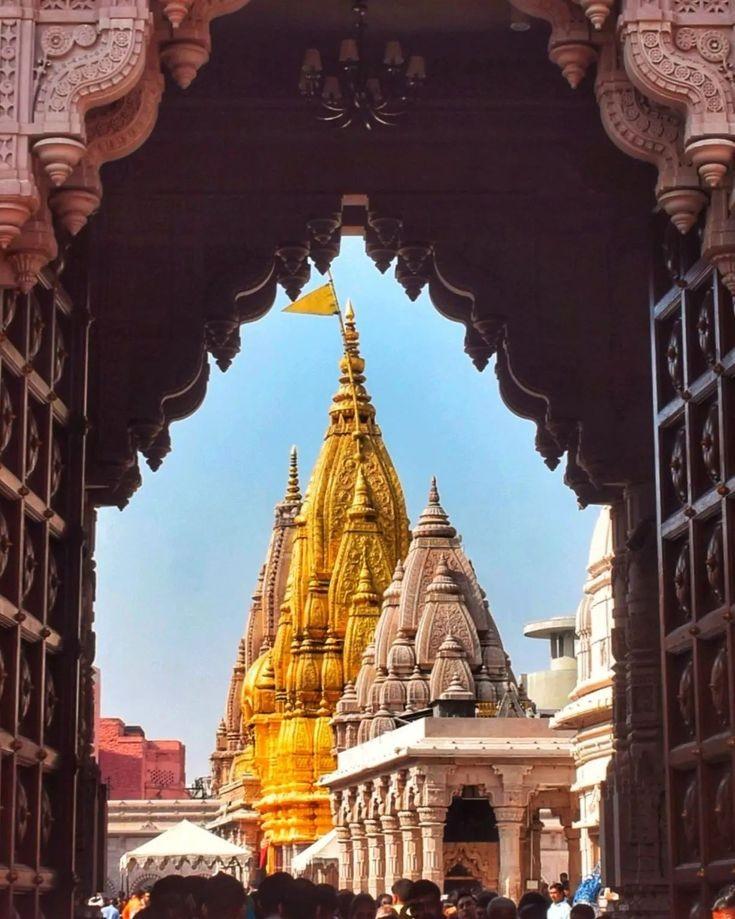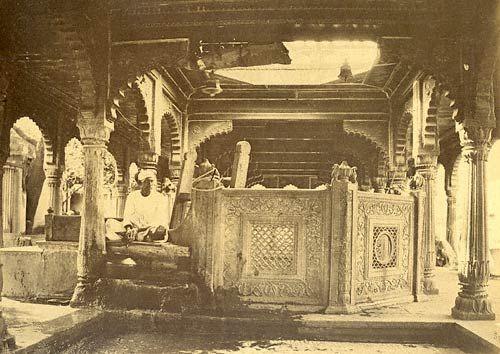Tagged: kashi, Kashi vishwanath temple, lord shiva, Varanasi
- This topic has 0 replies, 1 voice, and was last updated by .
-
AuthorPosts
-
April 10, 2024 at 11:53 pm #2026Up::21

The Kashi Vishwanath Temple in Varanasi, India, is not just any temple; it’s a deeply spiritual place for millions of people. Let’s explore why this temple holds such special significance in the hearts of devotees.
Firstly, let’s talk about Varanasi. It’s one of the oldest cities in the world, and it’s considered incredibly sacred in Hinduism. Now, imagine a temple right in the heart of Varanasi, dedicated to Lord Shiva, one of the most important gods in Hinduism. That’s the Kashi Vishwanath Temple for you.
The Kashi Vishwanath Temple holds immense importance in Sanatan Dharma, commonly known as Hinduism. Sanatan Dharma, often referred to as the eternal or universal religion, encompasses a vast and diverse array of beliefs, practices, and philosophies that have evolved over millennia. At its core, Sanatan Dharma emphasizes the eternal principles of righteousness, duty, and spiritual realization, guiding individuals on a path towards self-discovery and union with the divine.
In this context, the Kashi Vishwanath Temple occupies a central place as a sacred pilgrimage site for devout Hindus. Dedicated to Lord Shiva, the temple is believed to be one of the twelve Jyotirlingas, representing manifestations of Shiva’s divine energy. This association endows the temple with immense spiritual significance, as devotees believe that worshiping at the Kashi Vishwanath Temple can bestow divine blessings and spiritual merit.

Now, why is Lord Shiva so important? Well, he’s seen as the destroyer but also as a god who brings about change and transformation. So, the temple dedicated to him is like a powerhouse of spiritual energy. To understand this relationship, let’s delve into the significance of both the temple and Lord Shiva himself.
Firstly, Lord Shiva holds a prominent position in Hinduism as one of the principal deities of the Trimurti, the divine trio that includes Brahma the creator, Vishnu the preserver, and Shiva the destroyer (and transformer). Shiva is revered as the supreme being who transcends all dualities, representing both the immanent and transcendent aspects of existence. He is often depicted as the cosmic dancer, Nataraja, symbolizing the eternal cycle of creation, preservation, and destruction.
The Kashi Vishwanath Temple is believed to be one of the twelve Jyotirlingas, which are special representations of Lord Shiva’s divine light. It’s like having a direct connection to the cosmic energy of Shiva himself. That’s why visiting this temple is considered super auspicious for Hindus.

The Kashi Vishwanath Temple holds immense historical and religious significance in Hinduism. Let’s delve into why this temple is so revered and cherished by millions of devotees worldwide.
Throughout history, the Kashi Vishwanath Temple has been destroyed and rebuilt several times due to invasions and conflicts. However, each time it was rebuilt, it emerged even more resilient, symbolizing the enduring spirit of devotion and faith.
One of the most significant historical events associated with the temple is its destruction by Mughal Emperor Aurangzeb in the 17th century. Aurangzeb ordered the demolition of the temple and the construction of a mosque, known as the Gyanvapi Mosque, at the site. Despite this attempt to erase its presence, the temple continued ”o be venerated by devotees, and efforts were made to rebuild and restore it.

The temple Is also a centre for various religious rituals and ceremonies conducted by priests and devotees. Daily offerings, known as puja, are made to Lord Shiva, including the ritualistic bathing of the Shivalinga (a symbolic representation of Shiva) with water, milk, and other sacred substances.
For Hindus, a pilgrimage to the Kashi Vishwanath Temple is considered highly auspicious and spiritually rewarding. It is believed that by visiting the temple and offering prayers to Lord Shiva, devotees can attain liberation (moksha) from the cycle of birth and death.
One of the most revered rituals at the temple is the Ganga Aarti, performed every evening on the banks of the Ganges River adjacent to the temple. This elaborate ceremony involves chanting of hymns, lighting of oil lamps, and offering prayers to the river Ganges and Lord Shiva. The Ganga Aarti attracts scores of devotees and tourists who are mesmerized by the spiritual ambiance and divine spectacle.
In summary, the Kashi Vishwanath Temple is not just a building; it’s a living testament to the enduring power of faith and devotion. Its historical significance reflects the resilience of Hinduism in the face of adversity, while its religious significance serves as a beacon of hope and spiritual enlightenment for millions of devotees around the world.
Attachments:
You must be logged in to view attached files. -
AuthorPosts
- You must be logged in to reply to this topic.